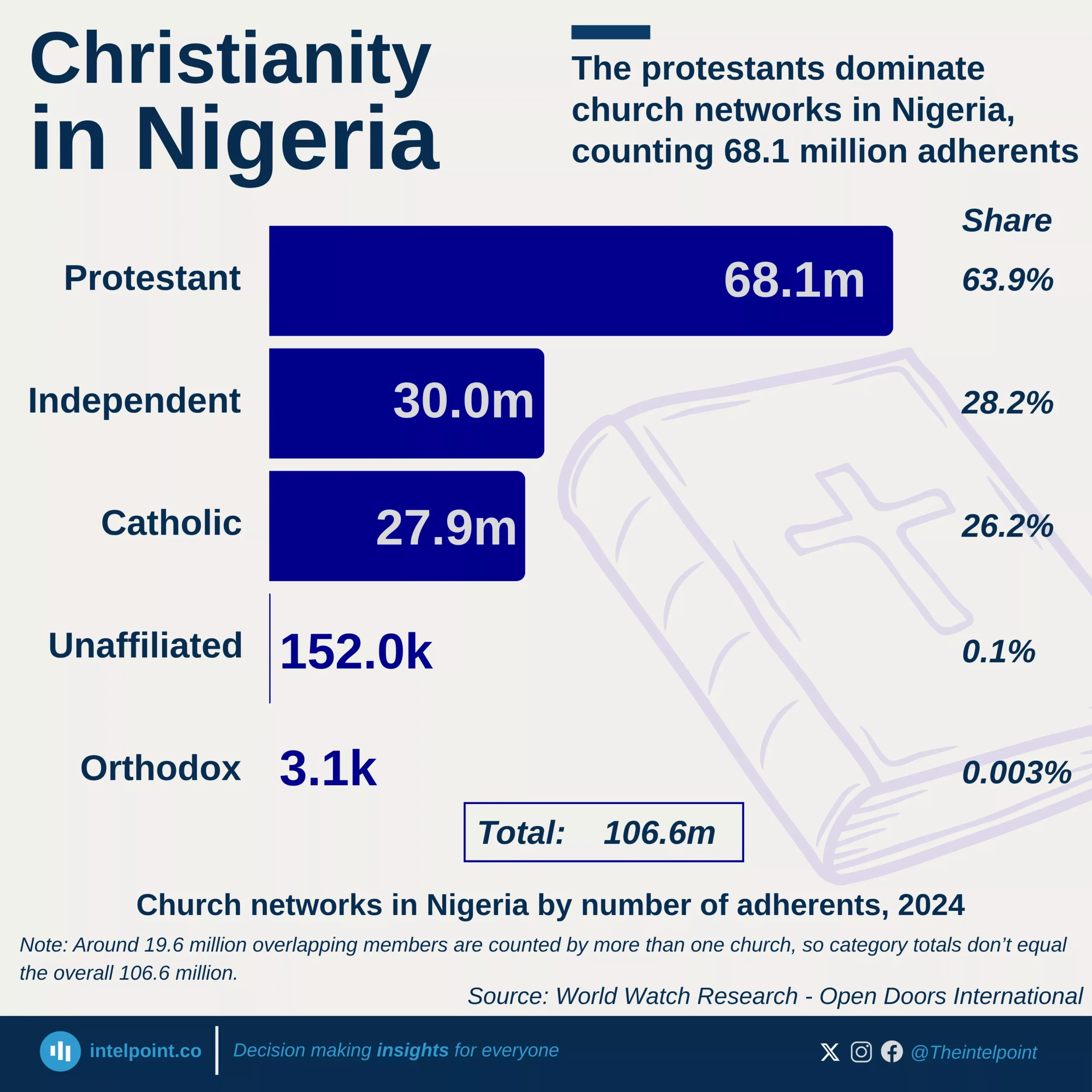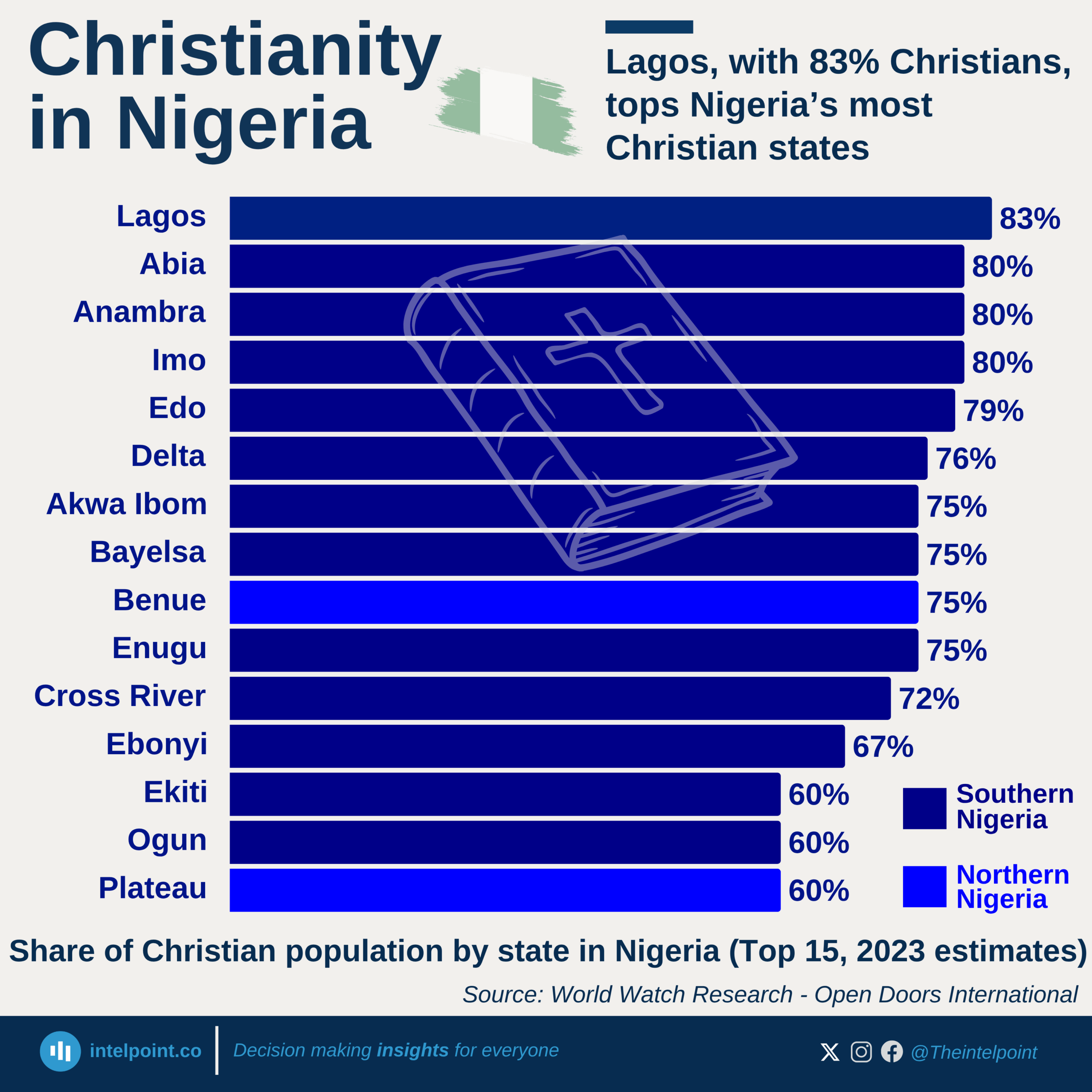Nigeria stands as one of the world’s most religiously diverse nations, a country where faith is not just a belief but a way of life. Out of its millions, 106.6 million Nigerians identify as Christians, representing about 46.5% of the population.
Running almost parallel in number are the Muslims, about 105.3 million, making up 46% of Nigerians. Together, these two dominant faiths (Christianity and Islam), represent a remarkable balance rarely seen in one country. Yet, Nigeria’s spiritual story goes beyond the familiar, as 16.4 million people still follow ethnic or traditional religions, honouring ancestral spirits, deities, and sacred rituals that predate colonial times. Their beliefs thrive quietly in villages, festivals, and oral traditions, preserving a heritage that reminds Nigerians of where faith began. Other religions in Nigeria includes Agnostics (592,000), Baha'is (57,600), Hindus (45,000), Buddhists (12,600), Jews (1,200) and 65,000 Atheists.
There are also 31,700 people identifying with other minor faiths and movements, reflecting Nigeria’s openness to diversity and spiritual experimentation. Despite its frequent religious tensions, the country’s balance of belief remains a living testimony of coexistence.
In every prayer, chant, or drumbeat lies the heartbeat of a nation bound by faith, a land where almost everyone in one form or another is an adherent of something sacred.

